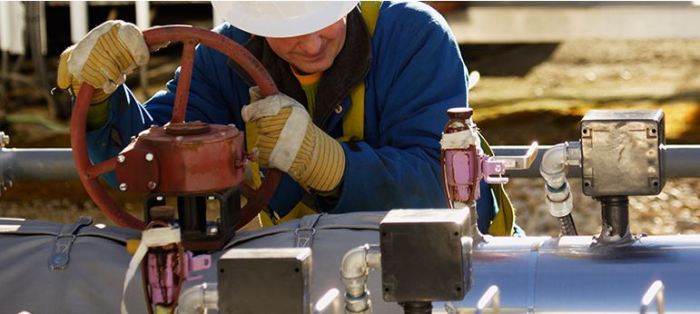Oil field accident attorneys navigate the treacherous terrain of industrial negligence, where the roar of machinery and the earth’s relentless pulse often mask the cries of the injured. These legal guardians stand as silent sentinels, safeguarding the rights of those caught in the unforgiving clutches of workplace accidents. Their expertise extends beyond mere legalities, delving into the intricate tapestry of safety protocols, company negligence, and the often-overlooked human element within the oil and gas industry.
Understanding the specific hazards, legal rights, and potential avenues for compensation is paramount in these cases.
From the initial assessment of the accident scene to the meticulous documentation of injuries, oil field accident attorneys play a pivotal role in ensuring a just resolution. They meticulously analyze the chain of events leading to the accident, examining safety regulations, equipment malfunctions, and the overall work environment. Their dedication to uncovering the truth, while advocating for their clients’ well-being, is the driving force behind their tireless efforts.
Introduction to Oil Field Accident Attorneys

Source: millerweisbrod.com
Oil field accident attorneys play a crucial role in advocating for the rights of workers injured in the oil and gas industry. They navigate the complex legal landscape, ensuring injured workers receive fair compensation and appropriate medical care.
Role of Oil Field Accident Attorneys
Oil field accident attorneys represent workers who have been injured on the job, helping them understand and exercise their legal rights. This includes guiding them through the workers’ compensation process, negotiating with insurance companies, and potentially pursuing additional compensation in cases of negligence or recklessness. They are vital for securing appropriate medical treatment and financial recovery.
Legal Issues Faced by Oil and Gas Workers, Oil field accident attorneys
Oil and gas workers face a unique set of legal challenges. These include, but are not limited to, negligence claims arising from unsafe working conditions, inadequate safety protocols, or equipment malfunction. Workers’ compensation claims, which often cover medical expenses and lost wages, are also a common legal issue. Furthermore, personal injury lawsuits may be necessary in cases where negligence by the company or another party led to the injury.
Importance of Legal Representation
Injured oil field workers often need legal representation to effectively navigate the complex processes involved in pursuing compensation. Attorneys can ensure the proper documentation of injuries, negotiate favorable settlements, and represent the worker’s best interests throughout the legal process. This protection is essential given the often significant financial and physical consequences of oil field accidents.
Common Causes of Oil Field Accidents
Several factors contribute to accidents in oil fields. These include equipment malfunctions, inadequate safety training, and unsafe working conditions. Inadequate maintenance, human error, and lack of supervision can also play a significant role in accidents. Moreover, environmental factors, like weather conditions, can contribute to accident risk.
Table of Common Oil Field Injuries
| Injury Type | Description | Frequency |
|---|---|---|
| Fractures | Broken bones | High |
| Lacerations | Deep cuts | High |
| Head Injuries | Concussions, traumatic brain injuries | Moderate |
| Burns | Thermal or chemical burns | Moderate |
| Amputations | Loss of limbs | Low |
| Back Injuries | Spinal cord injuries, herniated discs | High |
| Traumatic Eye Injuries | Loss of vision, corneal abrasions | Moderate |
Legal Rights of Injured Oil Field Workers: Oil Field Accident Attorneys
Injured oil field workers have specific legal rights and protections. Understanding these rights is crucial for pursuing appropriate compensation.
Legal Rights and Protections
Injured oil field workers often have rights under workers’ compensation laws, which provide for medical treatment and lost wage benefits. These protections are crucial for recovering from injuries and managing financial burdens. Depending on the jurisdiction and circumstances, workers may also have rights under personal injury laws. These laws may allow for compensation for pain and suffering, emotional distress, and other non-economic damages.
Documentation of Injuries and Incidents
Thorough documentation of injuries and incidents is vital for a successful compensation claim. This includes detailed medical records, witness statements, and photographs of injuries. Proper documentation can significantly bolster a worker’s case.
Statute of Limitations
There are often time limits for filing claims for compensation. These statutes of limitations vary by jurisdiction and type of claim. Failing to file within the timeframe may result in the loss of legal recourse.
Relevant Laws and Regulations
Workers’ compensation laws, along with specific regulations governing the oil and gas industry, govern the rights and responsibilities of workers and employers. Specific safety standards and regulations exist to minimize accidents and protect workers.
Table Comparing Legal Rights by Jurisdiction
| Jurisdiction | Workers’ Compensation | Personal Injury |
|---|---|---|
| Texas | Comprehensive, employer-funded | Available if negligence proven |
| California | Extensive benefits | Potential for additional damages if negligence proven |
| Louisiana | Statutory framework | Available if negligence proven |
Compensation for Oil Field Accident Victims
Compensation for oil field accident victims can cover a wide range of expenses and losses.
Types of Compensation

Source: myfitv.com
Compensation may include medical expenses, lost wages, and pain and suffering. In some cases, punitive damages may be awarded to punish negligent behavior.
Calculating Damages
Determining the amount of compensation involves evaluating medical bills, lost wages, and the extent of pain and suffering. Attorneys will often use expert testimony to help determine these values.
Process of Pursuing Compensation
The process involves reporting the injury, documenting evidence, and potentially filing a lawsuit. Negotiation with insurance companies and legal representation are often critical components of this process.
Factors Influencing Compensation
Factors such as the severity of the injury, the extent of lost wages, and the degree of negligence involved can influence the amount of compensation awarded. The jurisdiction’s specific laws and precedents can also play a significant role.
Table of Potential Financial Consequences
| Compensation Type | Description | Example |
|---|---|---|
| Medical Expenses | Costs associated with treatment | Hospital bills, therapy, medication |
| Lost Wages | Income lost due to inability to work | Average daily earnings x number of days off |
| Pain and Suffering | Compensation for physical and emotional distress | Variable, based on severity and duration |
Ending Remarks
In the shadow of towering rigs and the vast expanse of oil fields, the work of oil field accident attorneys is essential. Their dedication to justice, coupled with their profound understanding of the industry’s complexities, ensures that victims receive the compensation they deserve. The intricate dance between legal strategies, safety regulations, and expert testimony ultimately shapes the outcome of these cases, highlighting the profound impact these attorneys have on the lives of those affected by these devastating accidents.
Their work, in essence, is a beacon of hope in the often-dark and dangerous world of oil exploration.

